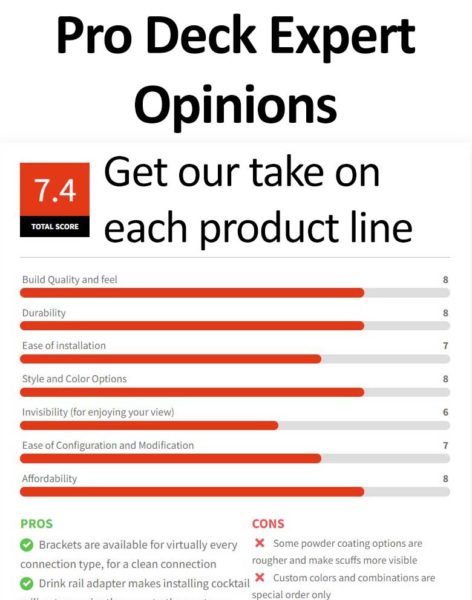It’s not always simple figuring out what’s going to work for your project. Cost, color, warranty, durability, texture, heat retention, etc. This article should help explain the different styles, price tiers, and appearance of many of the different decking lines, as well as pointing out some of the more unique features you might be looking for.
On a budget? Composites will generally cost less than PVC boards, although you can get a solid-colored PVC board at a lower cost than some of the more realistic-looking composite boards.
Collections like TimberTech Terrain and Fiberon Good Life have had a solid track record, so if you’re on a tighter budget and are okay with getting a simple texture and a solid color, the boards in those collections may be a good option for you.
Want an easier installation? PVC decking is lighter, more resilient, and requires less pre-drilling when fastening.
When comparing PVC and composite boards, each with a monotone color and simple texturing, youd spend more on the PVC board, but you are also getting deck boards that will be less likely to crack or break off, easier to fasten, less work to haul to your site, and a board that is more water-resistant in the long run.
Looking for something that looks like real wood? Zuri decking is a common name when it comes to a realistic look, since they actually print on a woodgrain pattern that fools even the deck experts (maybe, from a distance).
Other collections like TimberTech Reserve, Fiberon Promenade, and Azek Vintage achieve their realistic look by having a detailed texture, and incredibly fine texturing of natural color schemes, with some of their board colors even looking pre-worn or weathered.
Wolf decking is a mid-high range decking, because of their realistic appearance and high-quality PVC material. Wolf’s their color selection gets away from the traditional plain grays and browns, with more broken-up texturing, and color tones that stand out from other decking lines.
Does your backyard get a lot of sun? Composites generally collect and hold more heat than PVC because the material they’re made of is much denser than the cellular structure of PVC boards. If your deck is more than a few feet off the ground, wind and air circulation does wonders to cool off your deck during the heat of the day.
If you think your deck won’t have much shade and it’s close to the ground, it might be a good idea to look into getting a PVC board instead, especially if you want a dark board color.













